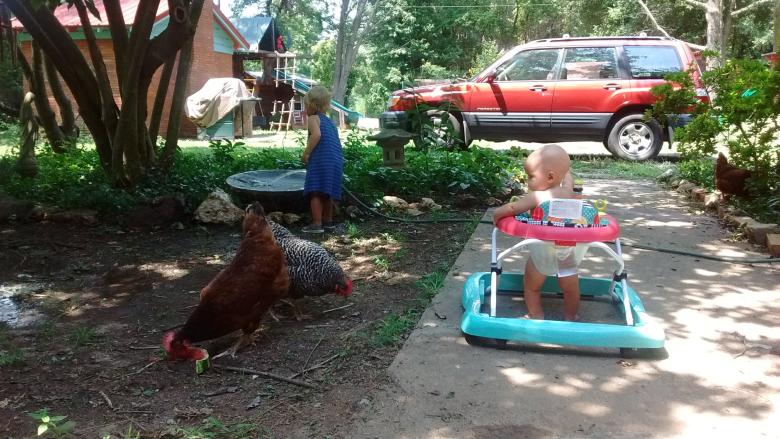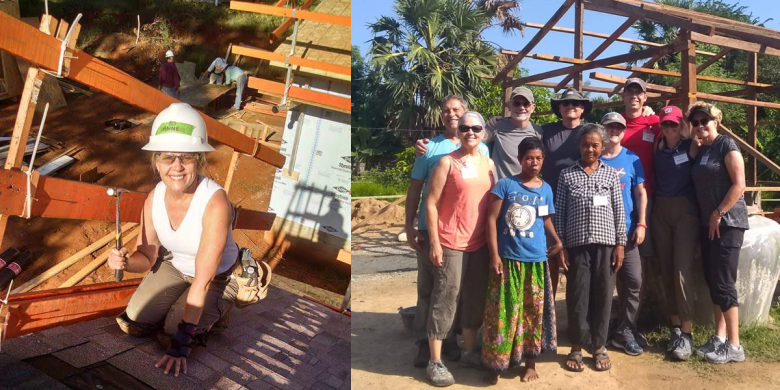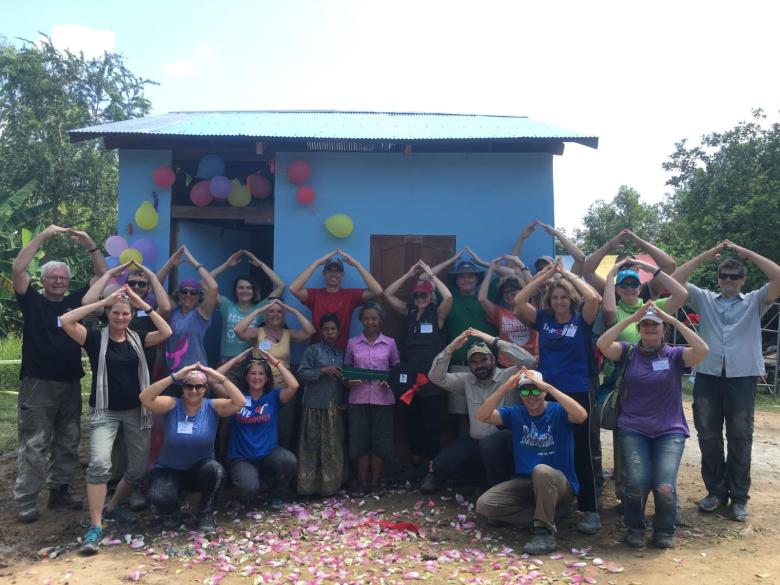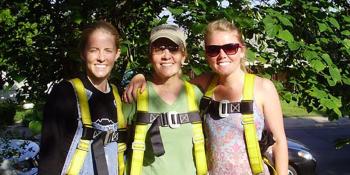Following her AmeriCorps year, Anne began a new job in ministry while continuing to volunteer and advocate for Habitat. Her faith and her passion often overlapped — resulting in bonding with her new congregation over Habitat builds, and, during summer camp, helping youth assemble sheds to complement future Habitat homes. She’s also taken her skills abroad through Global Village.
When Claire began her career in youth ministry at a local church, she also introduced new young people to Habitat and the importance of home and service. “Multiple kids in our youth group ended up working at Habitat. Many more still volunteer to this day,” says Claire. “For our family, it started with Dad, but this work with Habitat has created a web of support and friendship and community and connection that now spans generations.”
A growing impact
Five years after the critical repair program’s founding, Anne and her family joined other volunteers to complete the 100th critical repair project. It was dedicated to Jeff. Almost 15 years later, Habitat Charlotte Region completed 129 repairs in the 2021 fiscal year alone — hitting the 1,000th repair milestone while doing it — to help residents, most often older adults on fixed incomes, remain safely in their own homes. The program became an example adopted by other Habitat affiliates across the U.S.
“It’s the story of the mustard seed,” says Anne. “Jeff had no idea how his gift would grow and how God would bless that seed in my life, in our children’s lives, and in the lives of so many who never knew him — but he planted it all the same.”
“That’s really the story of Habitat,” she goes on. “Jeff was one, but every day people are giving and planting and helping others grow, often without realizing the impact of it all.” A day spent volunteering to build or repair, a check written to a community program, an old car donated, she lists, “These are the mustard seeds that make the ministry and that make change possible.”







